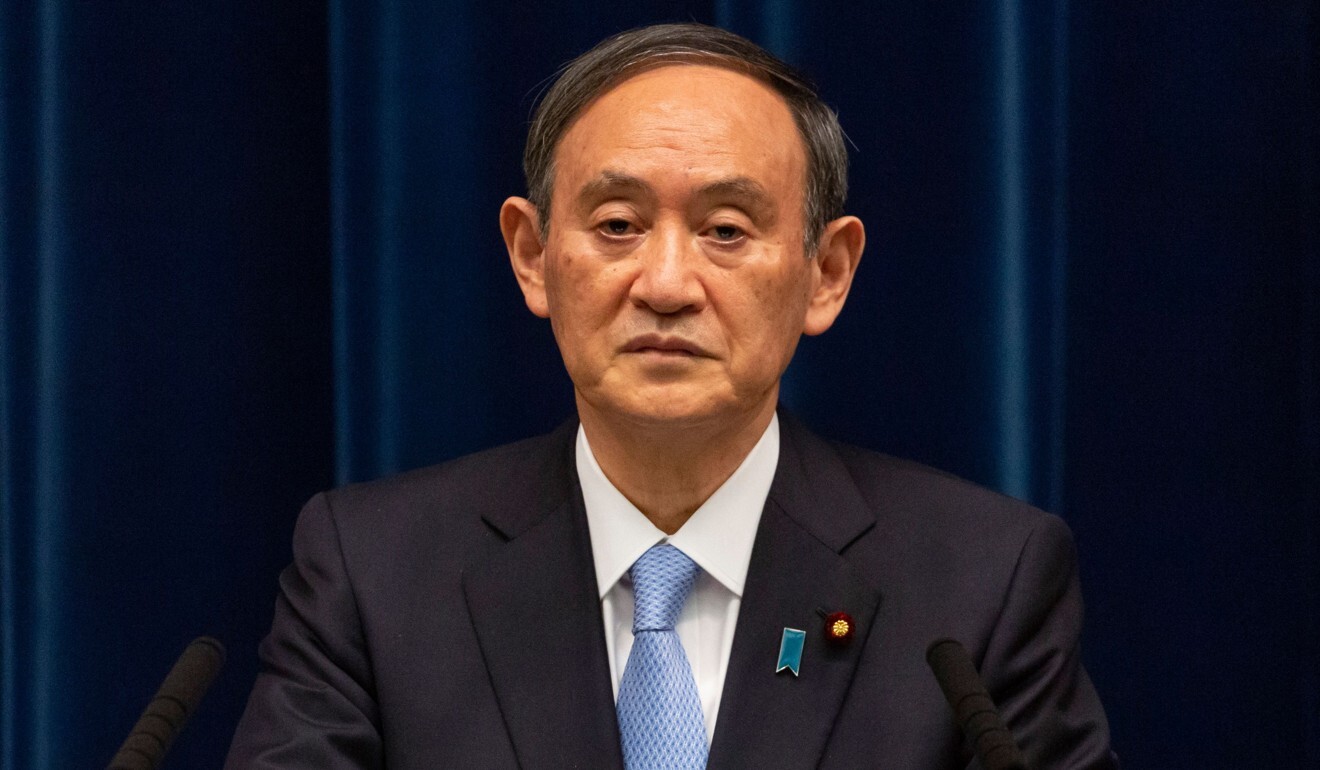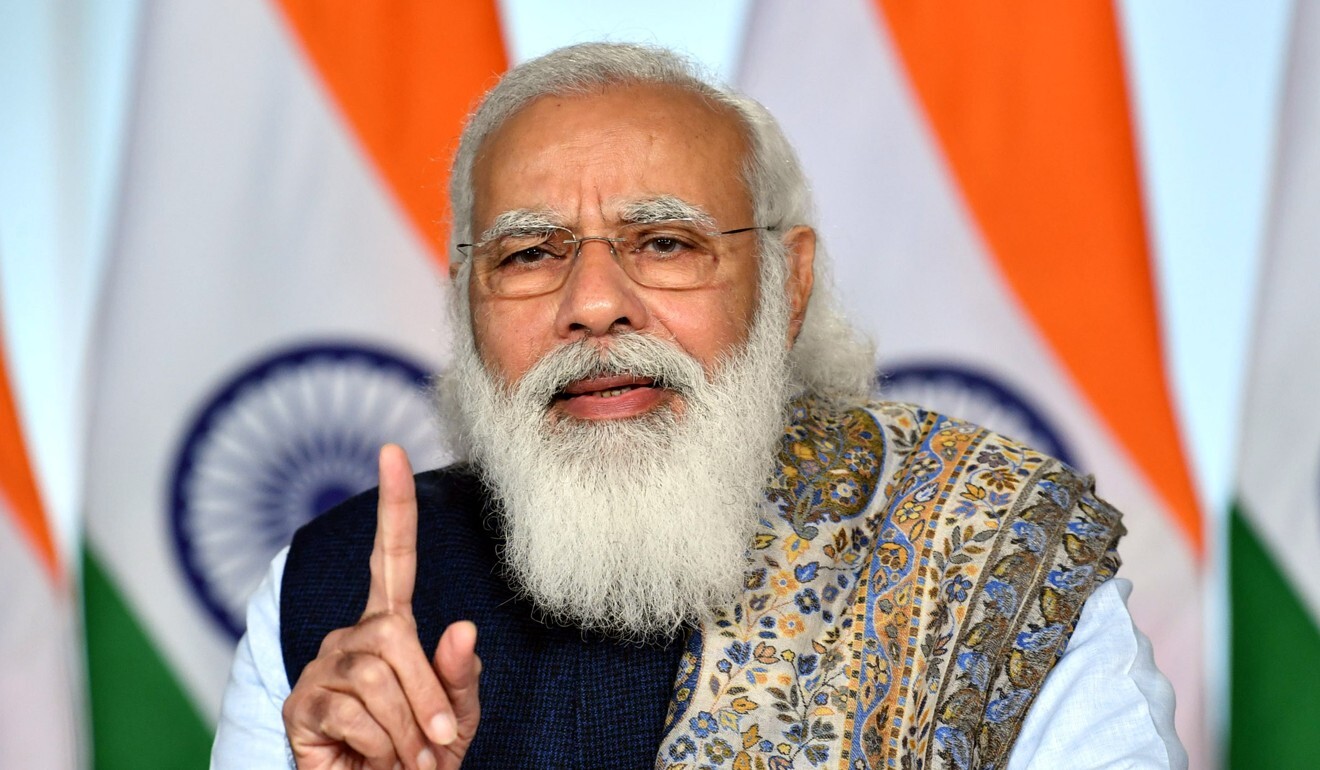
‘Uncomfortable signal to China’: Japan’s Suga raises Hong Kong, South China Sea, Xinjiang in phone call with India’s Modi
- Japanese PM Yoshihide Suga and India’s Narendra Modi hold phone call ahead of Quad meeting with US President Joe Biden and Australian leader Scott Morrison
- The pair pledge to realise a free and open Indo-Pacific as Japan expresses concern over China’s ‘attempts to change status quo’ in disputed seas

In the South China Sea, the US has become alarmed at China’s increasingly assertive actions, which have included establishing outposts on artificial islands. China claims about 90 per cent of the sea, where it has territorial disputes with various Southeast Asian countries.
“The talking points for these conversations are carefully drafted to make the maximum use of time and be to the point. The message conveyed on issues of mutual interest is also important,” Sibal said.
The former diplomat said the phone call needed to be seen in the context of the “change of administration in the US [and] the US National Strategic Security Guidance that spells out a tough US approach to China”.
What is the Quad, and how will it impact US-China relations under Biden?
The phone call and the Quad meeting were “important developments that will consolidate the Quad politically, commit India more clearly to its security dimension and send an uncomfortable signal to China which sees [these actions] as directed at it.”
K. V. Kesavan, distinguished visiting fellow at the Observer Research Foundation, a New Delhi based think tank, said: “There is no doubt that China’s growing presence in the Indo-Pacific is pushing the two countries closer as both have serious concerns about it.”
He said the phone call was a way of keeping high-level dialogue alive as a physical summit between the two sides had not taken place since 2018.

“[India] will have to reach a minimum consensus on restoring democracy but not on any coercive measures,” he said, adding that “Quad membership does not mean total alignment of policies on every issue.”
Deepa Wadhwa, a former Indian diplomat who served as ambassador to Japan from 2012 to 2015, said the phone call between the two prime ministers “seemed like a mini summit”.
“Given the extensive ground covered, it was clearly to keep up the momentum of the Special Strategic and Global Partnership that the two sides have,” he said.
Why the Quad doesn’t spell the future of Asia’s relationship with China
Abe was also the first to articulate the idea of the Quad, or the Quadrilateral Security Dialogue as it is more fully known, as an informal strategic forum.
Perhaps most significantly, Abe ignored opposition within Japan to conclude a civil nuclear agreement with India in 2018. Meanwhile, economic ties between the country blossomed under Abe.
In 2018-2019, Japan spent a record 522.4 billion yen (US$4.9 billion) on overseas development assistance to India, helping to fund infrastructure including the high-speed rail between Mumbai and Ahmedabad, a dedicated freight corridor in western India, and industrial corridors between Delhi and Mumbai as well as Chennai and Bangalore.
In January this year, India conferred the Padma Vibhushan, the second highest civilian award, on Abe in recognition of his contribution to bilateral ties.
After Abe stepped down because of ill-health, there were questions over whether the bilateral relationship would lose steam. But soon after taking over in September 2020 Suga reassured India that the emphasis on Indo-Japanese relations would remain.


